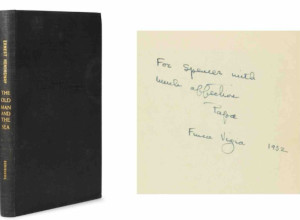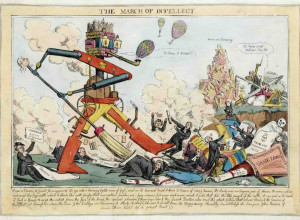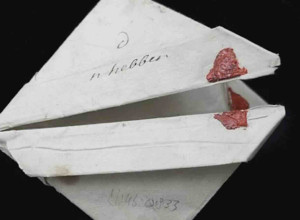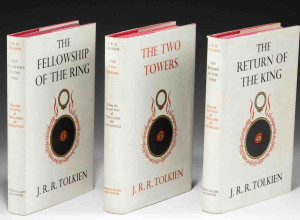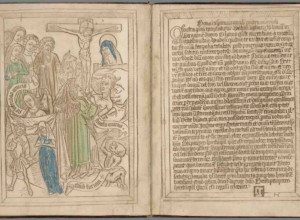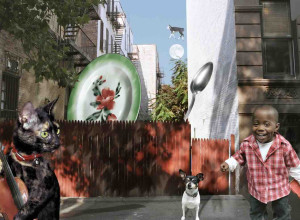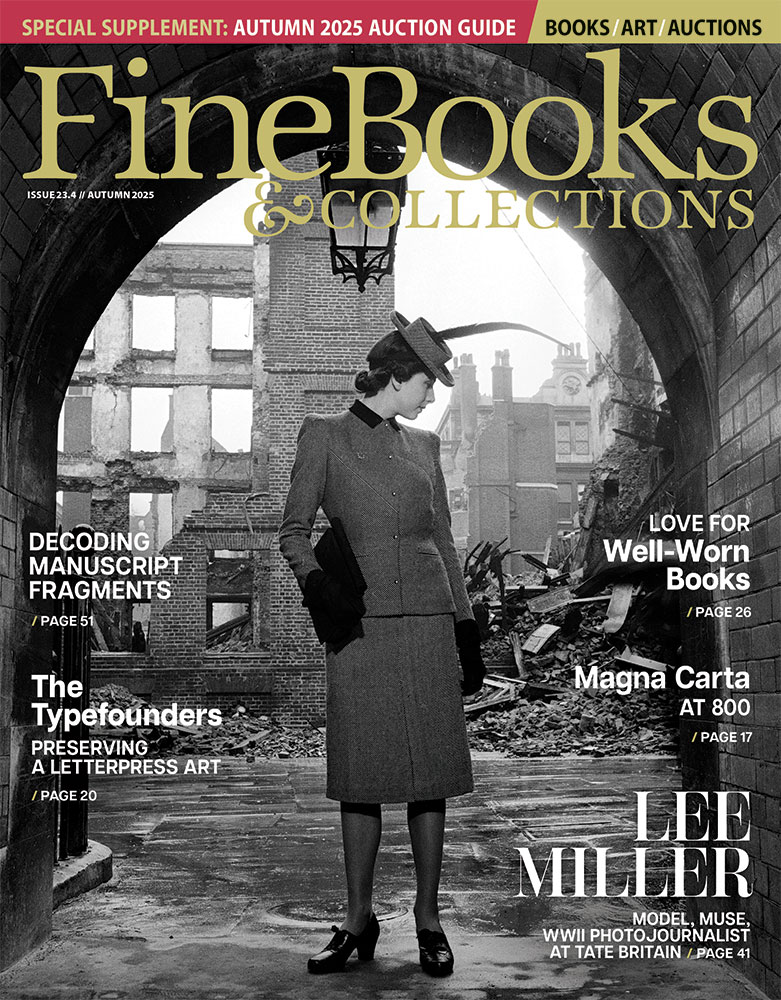Inscribed "Gone With the Wind" in Vivien Leigh's Collection at Sotheby's
 Hollywood icon and incandescent star of one of the most beloved films of all time, Vivien Leigh (1913-1967) captured hearts and minds with her fiery, luminous performance as Scarlett O’Hara in Gone with the Wind in 1939. Her legendary status in the pantheon of all-time greats was assured when she secured what perhaps remains to this day the most coveted role in cinema history. Our perception of such legends is often imperceptibly entwined with the myths they come to embody. This September, a spotlight will reveal the inner person few people really knew, in effect Vivien’s private life, when Sotheby’s London brings to auction The Vivien Leigh Collection.
Hollywood icon and incandescent star of one of the most beloved films of all time, Vivien Leigh (1913-1967) captured hearts and minds with her fiery, luminous performance as Scarlett O’Hara in Gone with the Wind in 1939. Her legendary status in the pantheon of all-time greats was assured when she secured what perhaps remains to this day the most coveted role in cinema history. Our perception of such legends is often imperceptibly entwined with the myths they come to embody. This September, a spotlight will reveal the inner person few people really knew, in effect Vivien’s private life, when Sotheby’s London brings to auction The Vivien Leigh Collection.
Passed down through Vivien’s family, the collection comprises paintings, jewellery, couture, books, furniture, porcelain, objets d’art and further items celebrating all aspects of her life, from the pre-war years in London, to Hollywood and beyond, up to her death in 1967. Myriad pieces drawn from the city and country homes Vivien shared with her husband Laurence Olivier will give a new perspective on Vivien, from her appreciation of art and patronage of Modern British artists, to her passion for books and fondness for entertaining and interior design.
Vivien Leigh’s family commented: “We hope people take as much pleasure from this collection as our grandparents, parents and families have done.”
Harry Dalmeny, Sotheby’s UK Chairman, commented: “This is our chance to discover the real, and unexpected, Vivien Leigh. We’re all guilty of confusing our favourite actresses with the heroines they portray, of blurring Vivien’s identity with that of Scarlett O’Hara or Blanche DuBois. But, behind the guise of the most glamorous and talked-about woman of her age we find a fine art collector, patron, even a book worm, who was the intellectual equal of the literati, artists and aesthetes she counted among her coterie. Her private collection does not disappoint. Vivien approached the decoration of her homes as if she were designing a set, incorporating influences and inspiration from a life spent on screen and on stage. These houses were an extension of the theatrical space, with medieval Notley Abbey looking positively Shakespearean. Fifty years on from her death, this sale opens the door into Vivien’s private world, allowing us a privileged and fascinating glimpse into a world that otherwise only her closest friends could ever have known.”
Vivien Leigh’s Personal Copy of Gone With The Wind
Given to her by the author Margaret Mitchell
£5,000-7,000
The quest to find an actress to play Scarlett O’Hara is one of the most enduring stories enshrined in the annals of Hollywood. Margaret Mitchell’s novel, winner of the 1937 Pulitzer Prize, was a best-seller in every sense, not only selling in staggering numbers, but striking a chord with female readers who fancied themselves as Scarlett. Among these fans was Vivien, one of the book’s earliest readers: “From the moment I read [it], I was fascinated by the lovely wayward, tempestuous Scarlett. I felt that I loved and understood her, almost as though I had known her in the flesh. When I heard that the book was to filmed in Hollywood early in 1939, I longed to play the part.”
A dedicated reader of the book, Vivien kept a copy close at hand during filming and deeply resented any divergence from Margaret Mitchell’s text. On the final day of shooting, Olivia de Havilland (‘Melanie Hamilton’) walked past Vivien, failing to recognise her. “She looked so diminished by over work... Her whole atmosphere had changed. She gave something to that film that I don’t think she ever got back.” Vivien went on to win her first Oscar for her performance in 1939. She was just 26 years old at the time.
Her copy of Gone with the Wind is inscribed by Margaret Mitchell with a hand-written poem: “Life’s pattern pricked with a scarlet thread / where once we were with a gray / To remind us all how we played our parts / In the shock of an epic day”.





